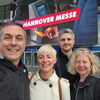Processing Your Payment
Please do not leave this page until complete. This can take a few moments.
- News
-
Editions
-
- Lists
-
Viewpoints
-
Our Events
-
Event Info
- Business Leaders of the Year Reception 2025
- Women's Leadership Forum 2025
- On the Road with Mainebiz in Bethel
- Health Care Forum 2025
- On The Road with Mainebiz in Greenville
- On The Road with Mainebiz in Waterville
- Small Business Forum 2025
- Outstanding Women in Business Reception 2025
- On The Road with Mainebiz in Bath
- 60 Ideas in 60 Minutes Portland 2025
- 40 Under 40 Awards Reception 2025
- On The Road with Mainebiz in Lewiston / Auburn
- 60 Ideas in 60 Minutes Bangor 2025
Award Honorees
- 2025 Business Leaders of the Year
- 2024 Women to Watch Honorees
- 2024 Business Leaders of the Year
- 2023 NextUp: 40 Under 40 Honorees
- 2023 Women to Watch Honorees
- 2023 Business Leaders of the Year
- 2022 NextUp: 40 Under 40 Honorees
- 2022 Women to Watch Honorees
- 2022 Business Leaders of the Year
-
-
Calendar
-
Biz Marketplace
- News
- Editions
- Lists
- Viewpoints
-
Our Events
Event Info
- View all Events
- Business Leaders of the Year Reception 2025
- Women's Leadership Forum 2025
- On the Road with Mainebiz in Bethel
- Health Care Forum 2025
- On The Road with Mainebiz in Greenville
- + More
- On The Road with Mainebiz in Waterville
- Small Business Forum 2025
- Outstanding Women in Business Reception 2025
- On The Road with Mainebiz in Bath
- 60 Ideas in 60 Minutes Portland 2025
- 40 Under 40 Awards Reception 2025
- On The Road with Mainebiz in Lewiston / Auburn
- 60 Ideas in 60 Minutes Bangor 2025
- - Less
Award Honorees
- 2025 Business Leaders of the Year
- 2024 Women to Watch Honorees
- 2024 Business Leaders of the Year
- 2023 NextUp: 40 Under 40 Honorees
- 2023 Women to Watch Honorees
- 2023 Business Leaders of the Year
- + More
- 2022 NextUp: 40 Under 40 Honorees
- 2022 Women to Watch Honorees
- 2022 Business Leaders of the Year
- Nomination Forms
- Calendar
- Biz Marketplace
Karen Mills on her record as SBA administrator
 PHOTo / courtesy U.S. Small business administration
Karen Mills, who is stepping down as administrator of the U.S. Small Business Administration, says new manufacturing techniques can add jobs in Maine in coming years.
PHOTo / courtesy U.S. Small business administration
Karen Mills, who is stepping down as administrator of the U.S. Small Business Administration, says new manufacturing techniques can add jobs in Maine in coming years.
Karen Mills, administrator of the U.S. Small Business Administration, will step down from the position in President Obama's Cabinet after the agency's second-term agenda is set and a successor is confirmed by the U.S. Senate. Mills spoke with members of the Maine media in a conference call following the announcement.
Mills established cutting red tape as a top agency priority when she took the post in 2009. To that end, she says the SBA took out nearly 100 pages of paperwork that lenders and borrowers previously had to fill out for loans under $350,000 in the agency's Small Loan Advantage program. As a result, the agency reported lenders cut processing times by as many as four business days. The following is an edited transcript.
Mainebiz: Why leave now?
Karen Mills: This is the end of the first term and it's a good time for a transition. We built a really solid foundation at the SBA in the first term and we had two things we had to focus on: The first was to meet the credit crisis. When I came to Washington, the situation was pretty dire for small business. This was one of the most important things that happened initially and we were able to get literally $1 billion out to small business when banks had just frozen lending. Now, small businesses are saying something different — they're not asking for a loan to save their business — but a loan to go after export markets or compete for contracts or hire more people. We're in a good place for small business growth, but we need to make sure they have the tools they need to go after the opportunities they have in front of them.
M: What are your plans after the SBA?
KM: My first task is to fulfill my promise to the president to ensure an orderly transition here at the SBA and that means I'll stay on until my successor is confirmed by the Senate. I have not yet begun the process of seriously considering future options.
M: You made cutting red tape a priority in your tenure at the SBA. What did you do to achieve that goal?
KM: One thing is disaster assistance applications. We've had a number of applications [from] Maine as we have had floods and ice storms. In the era of Katrina, it took almost 77 days to get that turned around. Today, following some important reforms and simplifications, most are being turned around — even at the height of [Hurricane] Sandy — in 21 days. One of the reasons that we did this is that we moved the process online and we reduced the application form [from a series of 80 screens] to three pages.
We have continued to simplify the loan process and eliminated 100 pages in our smaller dollar loan [applications] and took a similar amount out in our Capline program without increasing our risk. We rethought and streamlined the process that a bank needs to go through and the borrower needs to go through and eliminated unnecessary forms and activities, which has been a hallmark of what the president has asked us for.
M: What sectors do you expect will grow the most in the coming years?
KM: Two sectors we've been focused on in Maine and across the country are manufacturing and energy — particularly on manufacturing. I am optimistic and engaged in investing in innovative manufacturing and in the skills-training to make sure we have the workers to fill those jobs. [Maine] has an opportunity, as more innovative manufacturing becomes available, to see growth in manufacturing jobs. We've seen some companies that say if they have a good supply chain that they can 'in-source' their manufacturing and can be assured of a more promising future. We should be looking to provide those opportunities in Maine because I think we've got the assets.










0 Comments